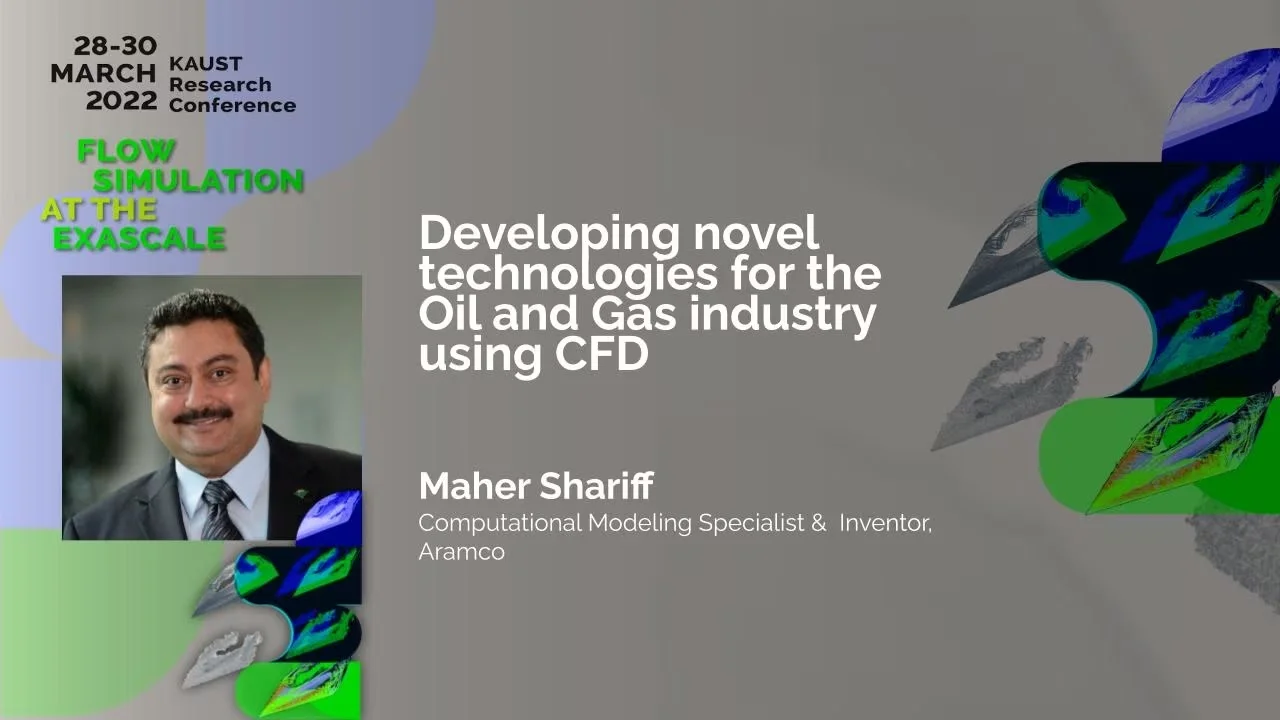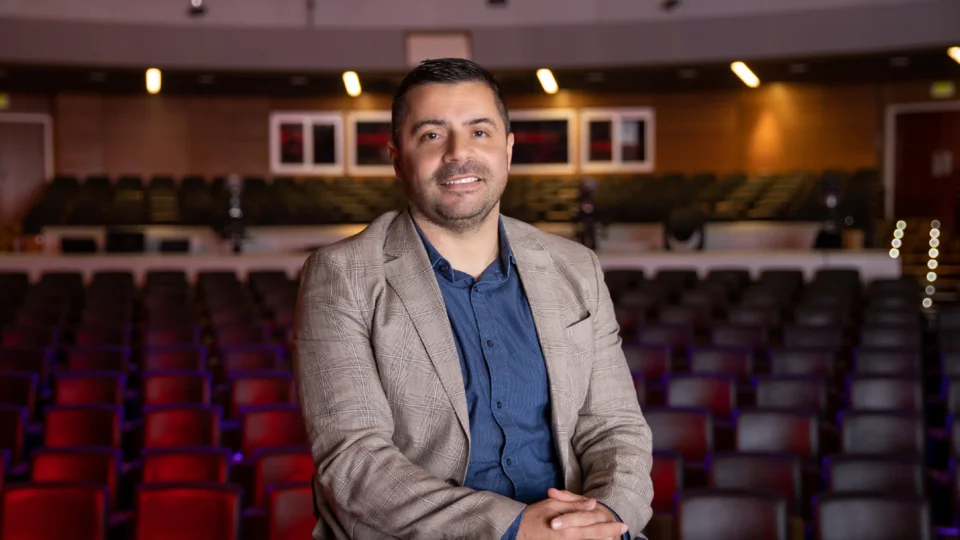
Developing novel technologies for the Oil and Gas industry using CFD
- Maher Shariff, Computational Modeling Specialist, Inventor, Aramco
KAUST Library
The significant role of employing Computational Fluid Dynamics (CFD) for the development of field-deployable innovative remedies for oil, water, and gas separation and stabilization will be presented. Oil and gas wells are two typical types of wells known to produce hydrocarbons in varying rates and compositions. Oil wells produce a multiphase fluid, consisting of a mixture of oil, water and gas at different ratios. Gas wells produce gas at the core of the production tubular, and condensate with an annular flow regime on the inner wall of the production tubulars. In order to achieve a consistent supply of oil and gas production for the company, numerous technologies were developed in-house at the Aramco R&D Center, with emphasis on mitigating adverse conditions as they arise. A few examples will be presented during the talk, the focus will be on how CFD interventive remedies improved the performance and debottlenecking of Low Pressure Degassing Tanks (LPDT) in the company. The talk will also illustrate how CFD is used to create robust, reliable, and efficient remedies to boost operational performance for various purposes across the company’s operations.
Overview
Abstract
The significant role of employing Computational Fluid Dynamics (CFD) for the development of field-deployable innovative remedies for oil, water, and gas separation and stabilization will be presented. Oil and gas wells are two typical types of wells known to produce hydrocarbons in varying rates and compositions. Oil wells produce a multiphase fluid, consisting of a mixture of oil, water and gas at different ratios. Gas wells produce gas at the core of the production tubular, and condensate with an annular flow regime on the inner wall of the production tubulars. In order to achieve a consistent supply of oil and gas production for the company, numerous technologies were developed in-house at the Aramco R&D Center, with emphasis on mitigating adverse conditions as they arise. A few examples will be presented during the talk, the focus will be on how CFD interventive remedies improved the performance and debottlenecking of Low Pressure Degassing Tanks (LPDT) in the company. The talk will also illustrate how CFD is used to create robust, reliable, and efficient remedies to boost operational performance for various purposes across the company’s operations.
Brief Biography
Dr. Maher M. Shariff holds a B.S. in Mechanical Engineering from Bradley University, a M.S. in Mechanical Engineering from Washington University, a Master of Engineering degree from Vanderbilt University, and a Ph.D. in Mechanical Engineering with highest honors from Wichita State University. Dr. Shariff's dissertation work at Wichita State, in association with the National Institute for Aviation Research (NIAR), was in the area of Computational Fluid Dynamics (CFD). After working for Cessna Aircraft Company (a Textron Company) as an Analytical Design Engineer from September 2000 to September 2001, Dr. Shariff joined SABIC Research and Technology Center in Jubail, Saudi Arabia, where he was employed until February 2003. Subsequently, he began his career with Saudi Aramco at their Research and Development Center, where he currently works as a Senior Research Scientist in the Oil and Gas Treatment Division. In August 2012, he joined Tulsa University Fluid Flow Projects (TUFFP) for one year as a Visiting Scholar at The McDougall School of Petroleum Engineering, University of Tulsa. Dr. Shariff's research interests lie in the areas of drilling and completion fluids, gas/oil/water separation, MHD pipe flows with heat transfer and advanced reactor design. He is credited with six granted U.S. Patents, a European Patent, a Gulf Cooperation Council Patent, and more than 20 regional and international publications and presentations. Dr. Shariff is a member of numerous professional societies, including the American Society of Mechanical Engineers, Society of Petroleum Engineers, American Chemical Society. He is serving as the Vice-Chair of the American Society for Mechanical Engineers (Eastern Saudi Arabia Section), in 2012 was elected to serve as the Publicity and Events Director for Saudi Arabian International Chemical Sciences Chapter of American Chemical Society (SAICSC-ACS). He is a member of several honor societies, including Sigma Xi (Scientific Research), Tau Beta Pi (Engineering), and Phi Kappa Phi (Academic). Maher is also the President of the Dhahran Shotokan Karate Club at Aramco.
